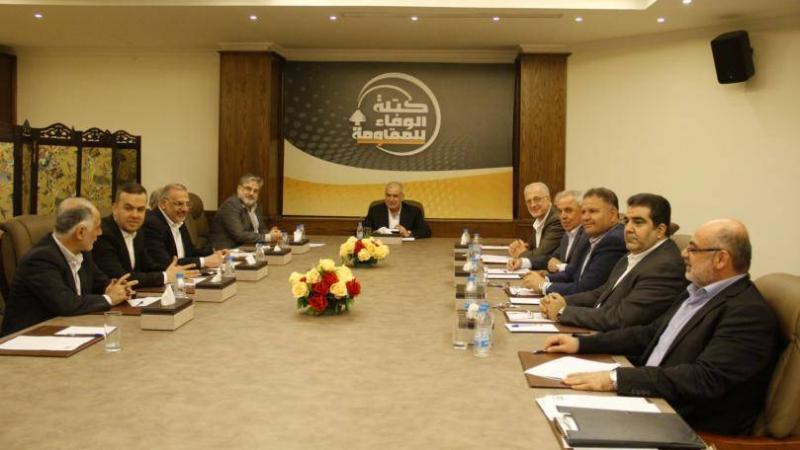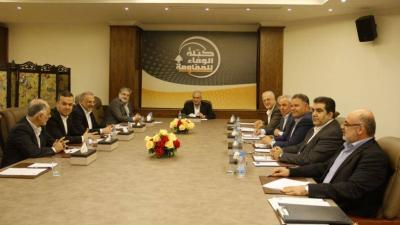The "Loyalty to the Resistance" bloc stated in a statement following its regular meeting at its central headquarters, chaired by MP Mohammad Raad, that "the deteriorating conditions on various fronts weigh heavily on the Lebanese, with the rapid collapse of the national currency, rampant prices, the decay of state institutions, the absence of serious remedies, and evasion of responsibilities. This necessitates urgent action from all those concerned for their country to find exits and seek the desired solutions away from factional and personal calculations, prioritizing the interest of the country, its unity, and civil peace away from proposals of division and federalism."
The statement emphasized that "in the process of searching for an exit to the presidential election crisis, the Loyalty to the Resistance bloc continues to monitor steps, efforts, and purposeful communications aimed at reaching an agreement, as it is considered the shortest and safest path to accomplish the election. However, we view with suspicion the fabricated provocations that agitate disagreements around the current monetary policy or around the methodology of investigating the Beirut Port explosion crime or regarding what befalls the judicial body or about addressing the teachers' demands or ensuring electricity supply or disbursing and distributing municipalities' dues from the revenue of the independent national fund, or any other attempts to disrupt the agreement around the presidency due to the tensions stirred by these issues that the country has recently seen rounds of exchanges over."
The bloc asserted that "the ongoing collapse of the national currency and what has occurred in the past few days regarding the deliberate increase of the dollar's price, which is outside any economic context, is part of the political pressures being exerted on the Lebanese to impose options that do not align with their interests. The relevant parties from the government and the central bank bear the responsibility to confront this dangerous manipulation affecting the livelihood of the Lebanese people, and the relevant ministries are called upon to make every possible effort to put an end to price manipulation."
The bloc underscored that "the signs of decay in various institutions and the structure of the state are beginning to pose a certain danger threatening the country, its people, and institutions. The blackmailing of the Lebanese through external pressures that intentionally aim to fracture the structure of the state is a malicious and vile practice, yet it will not bend the will of our resistant people determined to achieve liberation and sovereignty and refuse subservience and submission."
They expressed satisfaction with "the communications and meetings held by a delegation from Hezbollah's leadership with the leadership of the Free Patriotic Movement and the Progressive Socialist Party," considering that "continuing encounters and dialogue invigorate the efforts being made to address the country's crisis and its problems. They also represent a station for political forces to consult and exchange views regarding developments and upcoming events to reach the desired goal that achieves the public interest of the country."
The bloc noted that "education in Lebanon is a cornerstone of the nation," and upon expressing its vision regarding "the legitimate demands of teachers and in the context of its efforts to find a solution to the crisis," it appreciated "what was announced by the Prime Minister and the Minister of Education regarding achieving some of these demands and providing them along with an incentive for productivity." It hoped that "this would also apply to the Lebanese National University and the health-related files associated with the health security of the Lebanese citizen."




